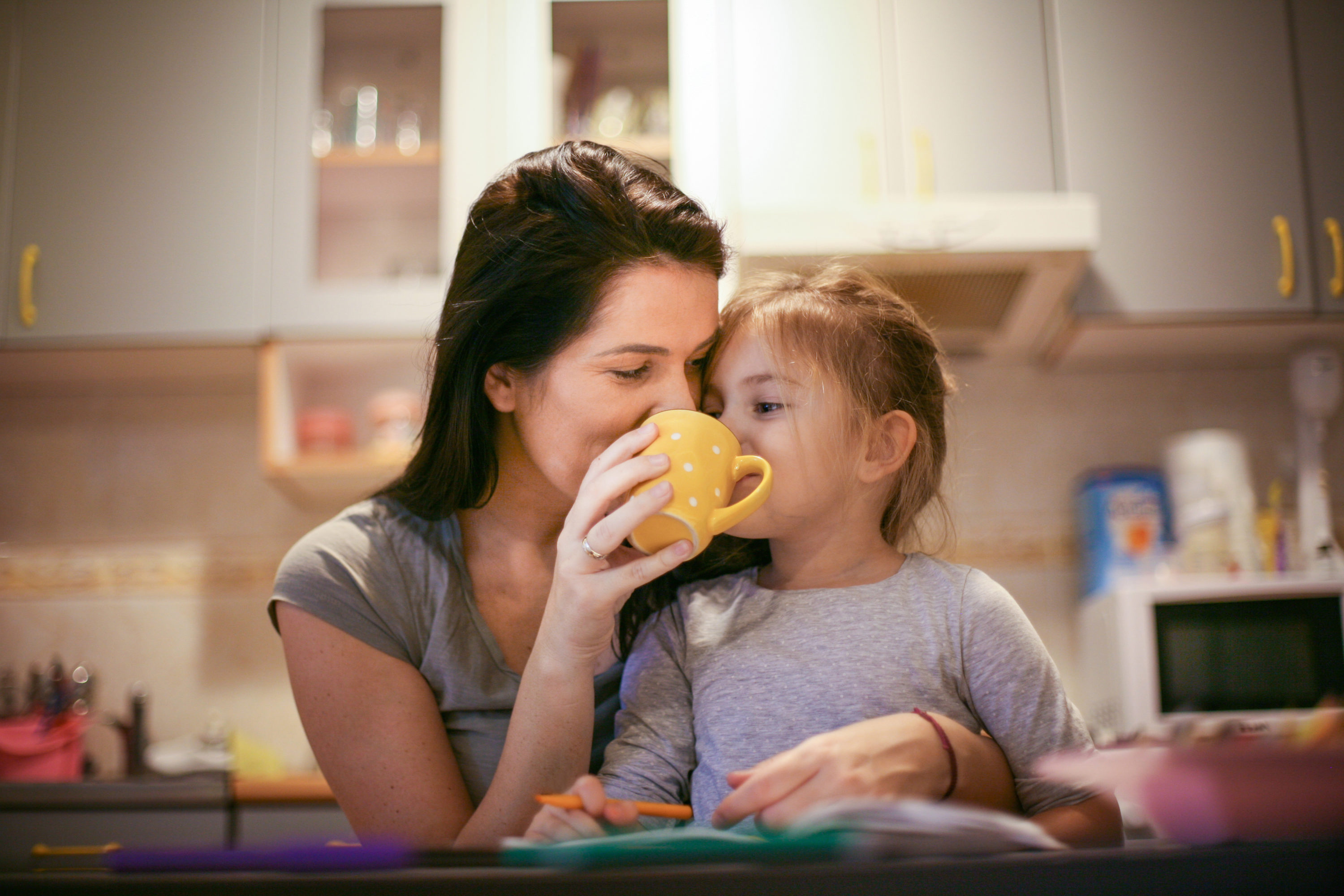
Natural Sleep Aids for Kids: 9 Proven Remedies for Better Rest
Parents know what happens when kids don’t get enough sleep. It affects the whole family. The kids become cranky and meltdown-prone and the grownups end up paying the consequences. Fortunately, there are many ways to help your kids get restful, restorative sleep without consulting a pharmacist. Better yet: you may already have some of these things around the house.
From calming baths to herbal teas, here are nine natural sleep aids for kids:
Drinking a warm beverage
Sipping a warm beverage before bed isn’t only a soothing ritual; it’s a science-backed sleep aid for kids and adults alike. Milk, for instance, has tryptophan, and green tea has theanine, both of which may help sleep, according to the American Academy of Sleep Medicine.
Other herbal teas, like chamomile and peppermint, can also promote sleep in kids by calming their minds and stomachs. (Note: If you’re in the midst of potty training your little one, this might not be the strategy for you!)
Taking a calming bath
A soak in a warm bath can help prepare kids to drift off. When part of a nightly bedtime routine, it signals the body that it’s time for sleep. Adding Epsom salts to the water can also help promote sleepiness. Epsom salts are made from natural minerals, including magnesium, which helps trigger the body’s natural serotonin production and creates a feeling of calmness. (Read the package instructions and adjust the dose to your child’s age and size.)
Having a screen-time cutoff
If your children use devices during the day, make a rule to cut off their screen time before dinner, ideally at least one to two hours before bedtime. Blue light from computers, smartphones, and tablets — and yes, TVs, too — could reduce their melatonin levels and impede their natural ability to feel drowsy enough for sleep. Plus, their digital activities distract, engage and stimulate them — and that’s just not what they need at bedtime.
Exercising during awake hours
Help kids reach the healthy fatigue they need to fall asleep by making sure they get vigorous cardiovascular exercise during the day. Shoot for energy-pumping activities like running races or climbing a jungle gym early in the day. However, limit any strenuous exercise right before bedtime, as it can raise their cortisol levels and make it harder to fall asleep. Light movement like yoga or stretching is relaxing and fine for bedtime.
Incorporating essential oils
Essential oils can delight kids’ senses while helping to reduce stress and encourage drowsiness. Lavender, peppermint, orange, and ginger essential oils are all considered safe and effective for use with children over five. Lavender aromatherapy is especially relaxing.
Try adding several drops into their warm bath, spraying a diluted solution onto their pillow and bed linens or using it in a diffuser to give their whole room a therapeutic fragrance. Bonus: Scent is a sense closely associated with memory, so you may be creating enduring memories of treasured family time — for everyone involved — through this aromatherapeutic ritual with your kids.
Sticking to a schedule
Kids thrive on routines. Creating a structured schedule — and sticking to it consistently — will help them fall asleep more easily when bedtime rolls around. If your child still naps, schedule the naps at the same time each day and limit naps close to bedtime.
The National Sleep Foundation recommends that toddlers need a total of 11 to 14 hours of sleep per day; preschoolers need 10 to 13 hours daily, and older kids need about 9 to 11 hours daily. That said, each kid is different. Some will naturally fall asleep later, or rise earlier. The key is consistency no matter what type of sleep pattern your little one keeps.
Minding the lights
Take note of the lighting in your kid’s room. If the lighting in your home is too bright, too cool, or the bulbs are fluorescent, it could be a deterrent to drowsiness. If it’s not conducive to sleeping, swap it for warm lighting from incandescent bulbs, and keep it dim leading up to bedtime.
Calming their fears
Anxiety releases cortisol in the body, which inhibits its ability to fall asleep quickly and naturally. Talk to your kids about any worries they might have — whether it’s fear of the dark, monsters under the bed, or some real-world concern — and try to soothe these troubles. Deep breathing exercises and guided meditations can also help reduce kids’ stress at bedtime and help them drift to sleep naturally.
Establishing a pleasant bedtime routine
Establishing an evening routine can create an association with bedtime that encourages sleepy feelings. A comforting bedtime routine might include some of the other strategies on this list (think: bath time and a warm beverage). And it might also include other nightly habits that make them feel safe and calm, such as reading a book with a parent, listening to calming music, or guided meditations at tuck-in time. If that doesn’t do it, try a soothing audio story once the lights go out. Moshi offers both magical sleep stories and meditations and meditations meant just for kids.
For more tips on helping kids wind down at the end of the day, try these effective calming techniques for kids.